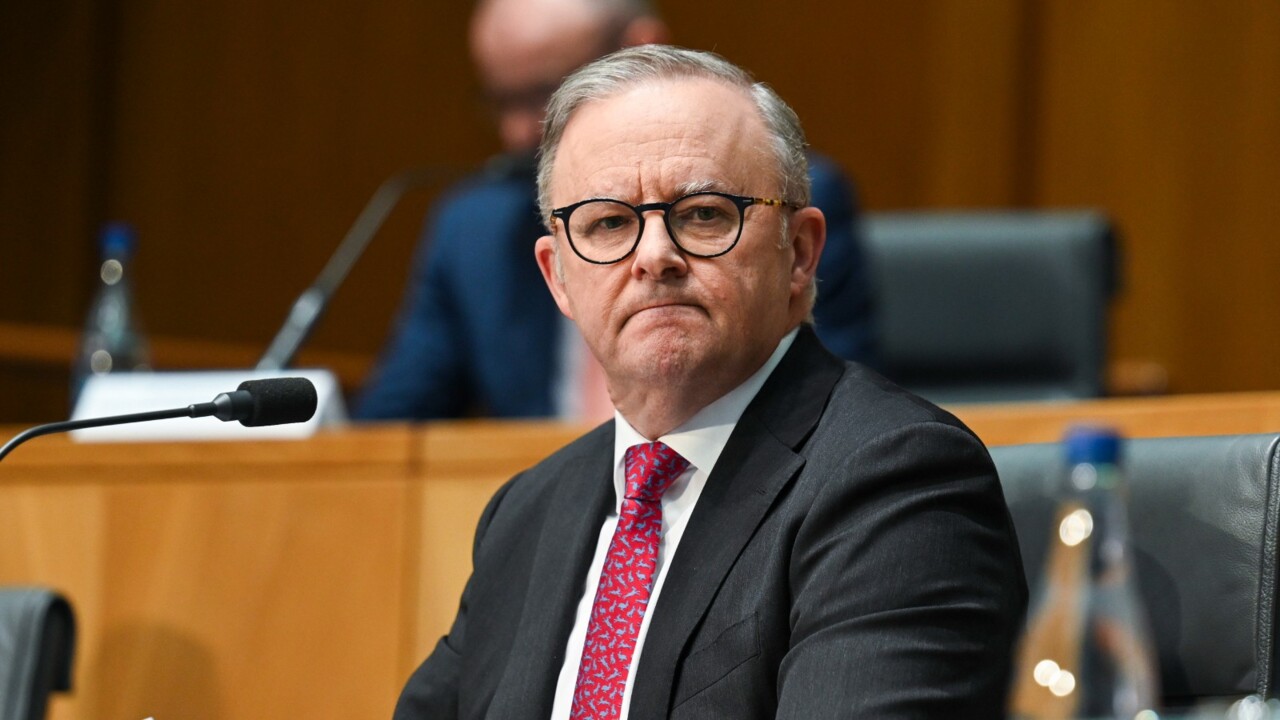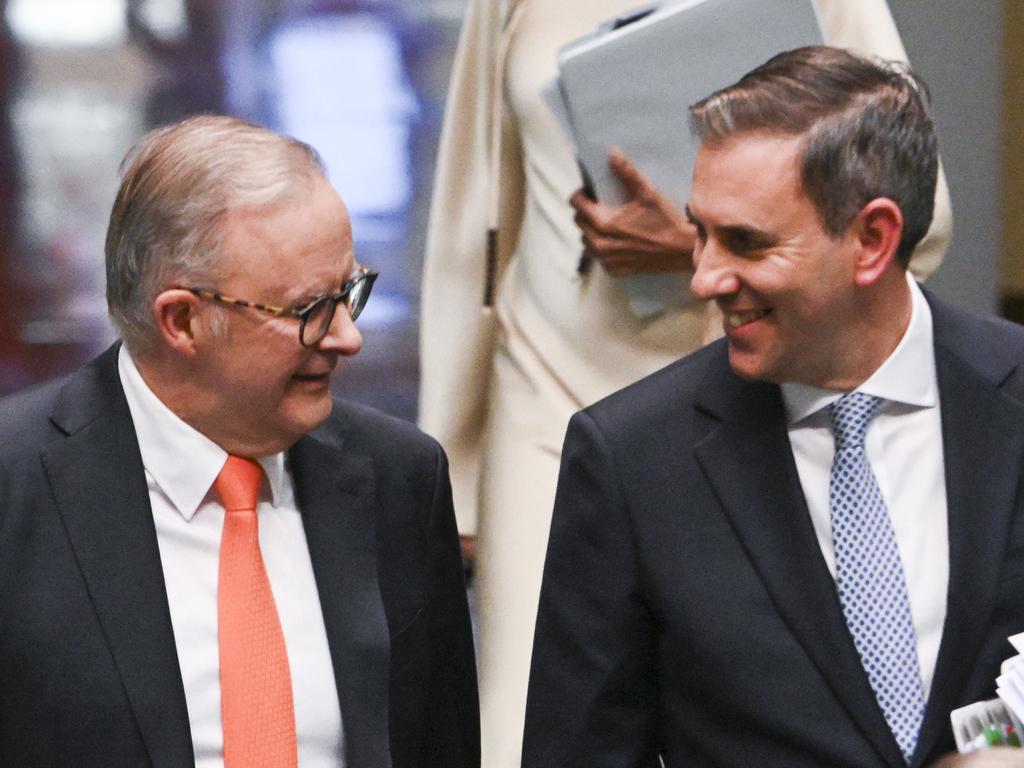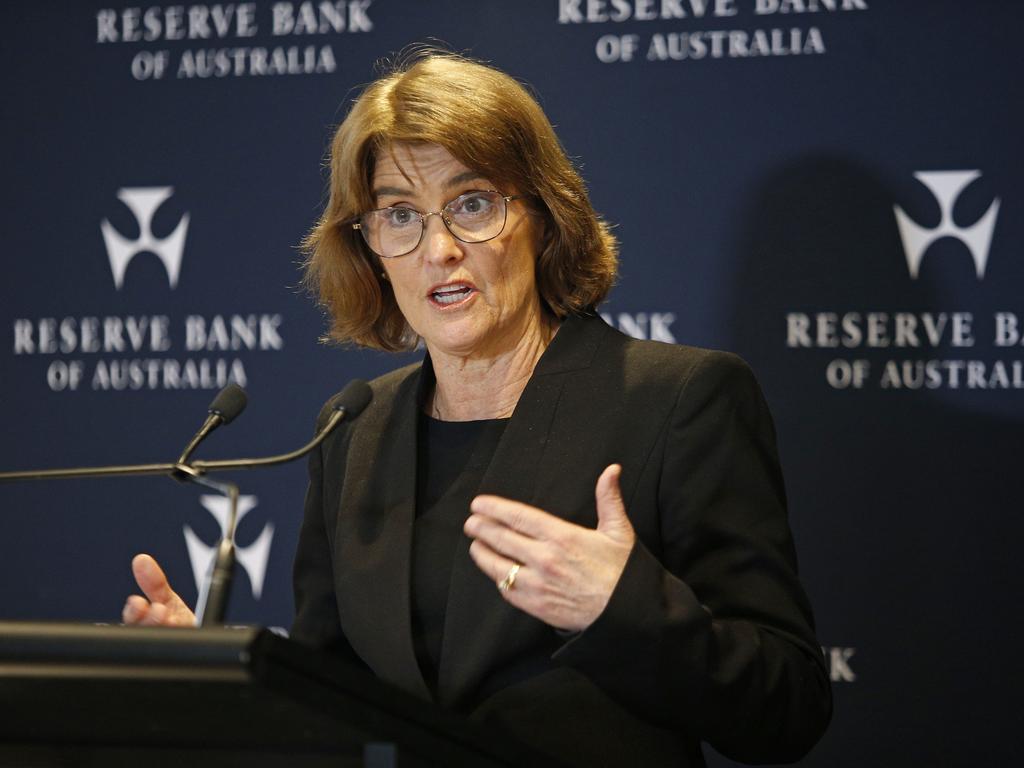Anthony Albanese’s alternative inflation facts emerge in row with RBA
Anthony Albanese has denied the central bank had blamed state and federal budget spending on higher inflation forecasts, with economists declaring the Prime Minister was wrong.

Anthony Albanese has denied the Reserve Bank has blamed state and federal budget spending for contributing to higher inflation forecasts, widening the split between his government and the central bank and prompting economists to declare the Prime Minister is wrong.
George Washington University assistant professor of economics Steven Hamilton said the RBA was “screaming from the rooftops” that government spending was contributing to inflation, despite the Prime Minister denying this was the case.
When asked on Thursday about the RBA attributing a worse outlook for underlying inflation to state and federal government spending, Mr Albanese responded: “That’s not what they said.”
The RBA revealed on Tuesday that it had pushed back its forecast on when underlying inflation would fall to the 2-3 per cent target range by six months, to the end of next year.
The RBA’s report – released after the board left the cash rate at 4.35 per cent after its two-day meeting – said this was partly because of a “stronger outlook for domestic demand, led by public demand”. “The stronger outlook for public demand reflects ongoing spending and recent announcements by federal and state and territory governments,” the report said.
Mr Albanese’s comments came after Jim Chalmers on Wednesday rejected the nation that state and federal government spending was contributing to higher forecasts for underlying inflation.
“Budget spending is not the primary determinant of prices in the economy, but we can be helpful, and we are being helpful, with the design of our cost-of-living policies which help us get back to targets sooner,” the Treasurer said.
On Thursday, RBA governor Michele Bullock warned in a speech in Armidale, NSW, that the central bank would “not hesitate” to lift interest rates again if needed to stop inflation from becoming “persistently high”.

The latest round of comments from Mr Albanese and Dr Chalmers build on a political narrative extending back to the 2023 budget, with Labor claiming that the government is making the RBA’s inflation fight easier and its cost-of-living relief is not contributing to higher prices. AMP chief economist Shane Oliver said it was clear the RBA had revised up public demand forecasts “based on ongoing increases in government spending”.
“The RBA, contrary to what the Prime Minister has said, has actually said that public demand is a factor slowing the return of inflation to target,” Dr Oliver said.
Judo Bank chief economic adviser Warren Hogan said he was “not sure how it was not clear” that government spending had had an impact on the RBA’s inflation forecasts.
“The RBA numbers speak for themselves,” Mr Hogan said.
He said the federal budget put demand into the economy that “is not going to result in more things being produced, it is going to result in prices going up”.
Assistant Professor Hamilton said no credible economist could argue the Albanese government was assisting the RBA in bringing down inflation.
“The RBA is notoriously reticent to even come close to criticising the government,” he said.
“The fact they decided to point to high public demand in explaining sticky inflation is the central bank equivalent of screaming from the rooftops what the cause of the problem is.”
Dr Oliver and Mr Hogan said the government’s plan to increase childcare wages by 15 per cent risked putting upward pressure on inflation, as it could increase household spending and potentially push up wages in other sectors competing for workers.

Despite what the economists and the Reserve Bank were saying, Mr Albanese said on Thursday the government’s policies were helping bring inflation down.
“We’re not going to leave people behind,” the Prime Minister told the Seven Network.
“We’re making sure that they’re getting that cost of living relief, but we’re doing it in a way, so it’s designed to put that downward pressure on inflation at the same time.”
The RBA has this week made clear it would look past the impact of temporary energy rebates when considering interest rates.
Ms Bullock said the RBA forecasts showed the gap between aggregate demand and aggregate supply in the economy was “larger than previously thought and this is resulting in persistent inflation”.
Ms Bullock said she expected the pace of demand in the economy to pick up over the next year, keeping an interest rate hike in play.
“The effect of this is that the board’s expectations for when inflation will come back to target have been pushed out,” she said.
“We don’t expect to be back in the 2 to 3 per cent target range until the end of 2025 – over a year away.
“This is why the board explicitly considered whether another interest rate rise was required to ensure inflation continues to decline in a reasonable time frame.”

The RBA’s revised forecasts show underlying “trimmed mean” inflation falling to 2.9 per cent in the year to December 2025 and to 2.6 per cent in the year to December 2026.
While the Coalition’s economic agenda is largely unknown, Peter Dutton accused Labor of failing to listen to the concerns of the central bank.
“The laws of economics don’t change and Labor always conveniently forgets about it,” the Opposition Leader told 2GB radio.
“They just continue to spend because that’s what the unions want them to do and that’s what they think makes them popular.
“It seems he’s (Anthony Albanese’s) not listening to the words of the Reserve Bank governor because she’s worried about the amount of money that Labor’s spending at the moment and that’s been part of the reason that interest rates have gone as high as they’ve gone.”
NAB chief economist Alan Oster said the government’s statements disagreeing with the Reserve Bank on public demand contributing to greater inflationary pressure in the economy were “political and not economics”.
“I don’t think it’s helpful, but I don’t think it’s very important,” Mr Oster said.
“The more important bit is what happens to the consumer. All of us are assuming the consumer will spend a large chunk of the tax cuts.
“Consumption is 55 per cent of the economy. And public spending, I’ll be generous, is 20 per cent. If consumption doesn’t go up as quick as we are all thinking, the economy ain’t going to be hot. It’s going to be really slow.”
While the RBA was projecting growth to be 1.7 per cent by the end of the year – up on the May forecast of 1.6 per cent – Mr Oster said NAB believed growth would be closer to 1.2 per cent.





To join the conversation, please log in. Don't have an account? Register
Join the conversation, you are commenting as Logout